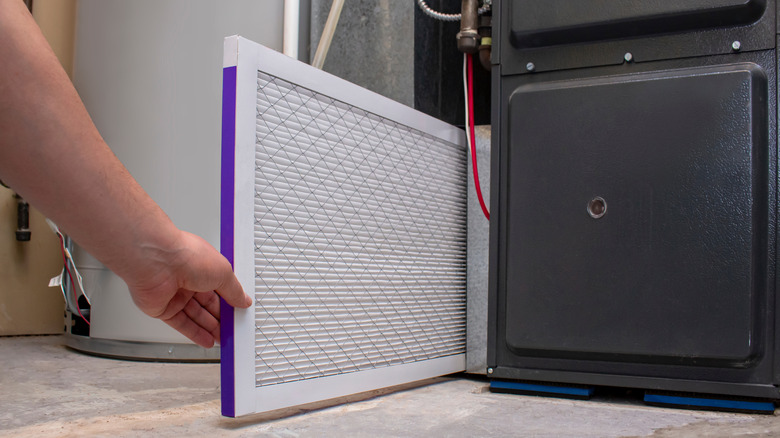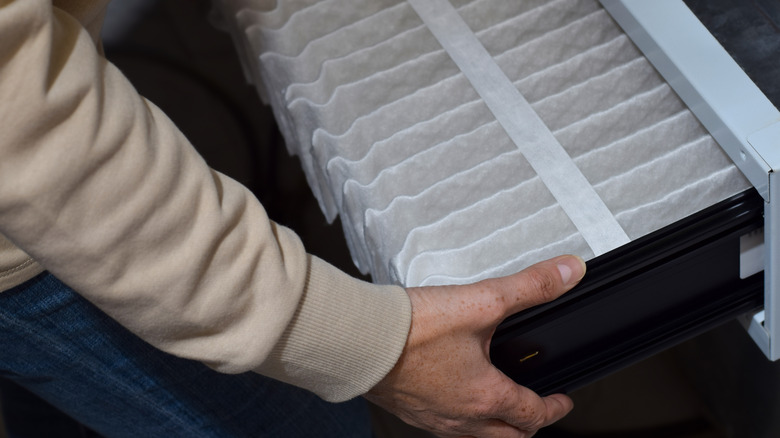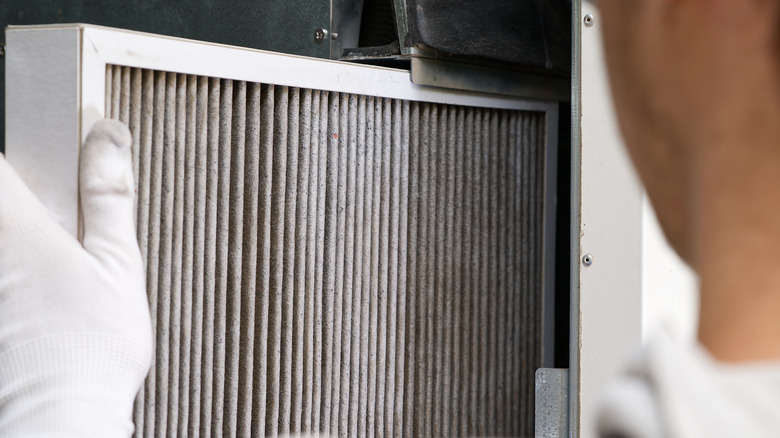Is It Worth It To Buy Expensive Furnace Filters?
We may receive a commission on purchases made from links.
Are premium furnace filters worth the investment? In most cases, the answer is no — but ultimately, it depends on your needs. Expensive furnace filters such as HEPA filters are more effective at filtering the fine particles in your home that contribute to allergy symptoms, such as dust, pet dander, pollen, and even fumes caused by air pollution. If you and the members of your household do not have respiratory issues, then splurging on a high-end filter may not be necessary. However, if you live in a wet climate where mold is more common or an area with high levels of air pollution, the enhanced capacity of a HEPA filter to trap and eliminate bacteria may be beneficial.
If none of those considerations apply to you, a budget-friendly basic filter may meet your needs perfectly. However, it's worth noting that the type of filter you buy will have a bearing on how often you replace it. For example, cheaper disposable filters must be replaced fairly often. Over time, a worn-out filter could worsen the air quality in your home and reduce the effectiveness of your furnace. If your utility bills have increased and you're still cold with the heat on, a dirty filter may be the problem. You may also find more dust bunnies around the house. On the other hand, a high-end filter may place unnecessary strain on your furnace, forcing it to work harder and potentially driving up energy costs.
Understanding the diifferent types of furnace filters
A primary indicator of a furnace filter's quality is its Minimum Efficiency Reporting Value (MERV) rating, which measures its ability to remove airborne pollutants and small particles from the environment. Though the MERV scale ranges from 1 to 20, with 20 being the most effective, experts recommend choosing a filter with a MERV rating of 8 to 13. Anything greater is not intended for residential use and may actually cause harm to your HVAC system. Higher ratings are best suited for homes with immunocompromised or allergy-prone residents.
There are a wide variety of filter types, ranging from cheap disposable ones to reusable electrostatic filters, which use an electric charge to attract particles and can be washed and reused for several years. On the pricier end are HEPA filters and smart technology-enabled filters, which offer the convenience of real-time updates that you can check from your smart devices. All of these options have pros and cons that are important to consider to find the right fit for your home.
How to choose the right furnace filter for you
On the low end of the scale are filters made of disposable fiberglass, which can be picked up for just a few dollars. The MERV rating for disposable fiberglass ranges from 1 to 4. Despite their low-end filtering ability, these filters can be fine for the average household — but keep in mind that they may require replacement every few weeks. For a step up, consider a pleated filter. These have a MERV rating between 7 and 9, making them a better choice for those with allergies. They also last several months compared to weeks and are still relatively budget-friendly. This set of three Dust Reduction Pleated MERV 8 Air Filters from Home Depot is $37.99, which equates to $12.66 per filter.
On the pricier end are High-Efficiency Particulate Air (HEPA) filters, which have MERV ratings of 17 to 20 and are often used in medical clinics to sterilize the atmosphere and remove airborne contaminants. HEPA furnace filters will remove the ultra-fine harmful particles from your home's atmosphere, making them worth consideration if you or a family member have severe allergies or respiratory problems. However, a HEPA filter may strain your furnace and increase your utility bills. The Rolls Royce of furnace filters is the Filtrete Smart Air Filter, which uses special technology to capture micro-particles and can be paired with your smartphone or home automation device. Unless you have a strong preference for home automation, this is more of a luxury than a necessity. If you're considering a higher-end filter, you should check with your furnace manufacturer to see which MERV ratings your furnace can support.


